Comoros
A second day of unrest in the Indian Ocean island nation of Comoros on Thursday (Jan. 18) left one person dead and at least six others injured, a health official said.
The protests came after incumbent President Azali Assoumani was declared the winner in an election held over the weekend that was denounced by the country’s opposition parties as fraudulent.
The announcement late Tuesday that Assoumani had won a fourth term triggered violent protests that started Wednesday, when a government minister’s house was set on fire and a car at the home of another minister was burned.
People also vandalized a national food depot. Several roads in and around the capital, Moroni, were barricaded by protesters who burned tires. Riot police clashed with the demonstrators.
On Thursday (Jan. 18) a curfew was in force from 7PM-6 AM in Moroni (the capital), the Bambao region and Itsandra. In the rest of the country it was from 10 PM-6AM.
The person who died was a young man, said Dr. Djabir Ibrahim, the head of the emergency department at the El-Maarouf Hospital in Moroni. He said that the man likely died of a gunshot wound. One of the injured was in a serious condition, he said.
U.N. human rights chief Volker Türk appealed for calm and urged authorities to allow people to protest peacefully. His office said that it received reports of security forces firing tear gas at peaceful protesters, including on a march by a group of women earlier this week. Türk also said that he was concerned with repression in Comoros in recent years.
Opposition parties have claimed that Sunday's vote was fraudulent and say the national electoral commission is biased toward Assoumani, a former military officer who first came to power in a 1999 coup. The opposition has called for the election results to be canceled.
Protesters arrested
Comoros has a population of around 800,000 spread over three islands.
Assoumani, 65, was reelected with 62.97% of the vote after changing the constitution in 2018 to allow him to sidestep term limits. He has been accused of cracking down on dissent and previously banned protests. He chairs the African Union, where his one-year largely ceremonial term will end next month.
The government said that a number of protesters were arrested, without offering specifics, and accused the opposition of finding “it difficult to accept defeat” and inciting the unrest.
“We know the instigators," government spokesperson Houmed Msaidie said. “Some of them are in the hands of law enforcement. We will continue to look for them, because there is no question of the state giving way to violence.”
A coalition of opposition parties denied the accusations, saying the unrest shows that people are “fed up” with the government.
When Assoumani changed the constitution in 2018, the move triggered mass demonstrations across the nation and an armed uprising on one of the islands that was quelled by the army.
After taking power in a coup, Assoumani was first elected president in 2002. He stepped down in 2006, but returned to win a second term in 2016.



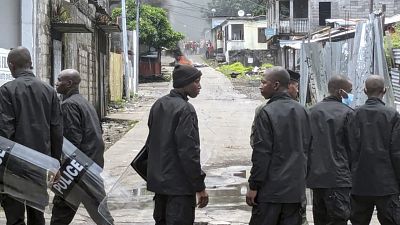

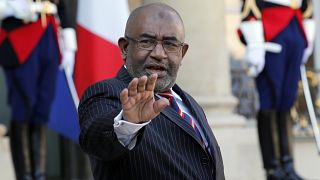
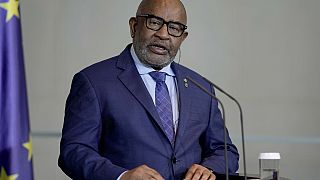
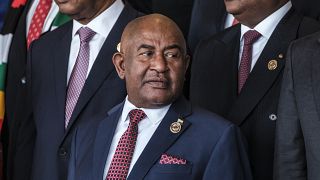

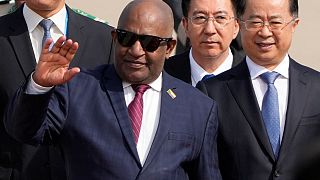


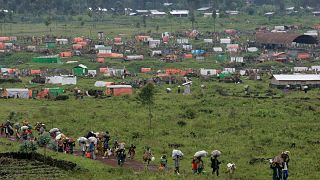
02:55
In Cameroon, Paul Biya's candidacy divides his party
Go to video
Togo protest crackdown raises fears of worsening political crisis
02:21
Ivorian diaspora in Paris demands free and inclusive elections ahead of October vote
02:16
Kenya's William Ruto faces growing discontent over economy and police brutality
01:02
Togo: Amnesty International calls for end to use of force against protesters
00:48
Death toll in Kenyan anti-government protests rises to 16, says rights group